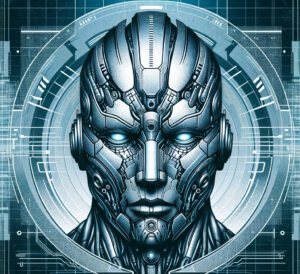The world is entering a new era, where artificial intelligence (AI) is driving a revolutionary shift from traditional forms of power—horsepower and manpower—to the age of machine-power. This transformation is reshaping industries, economies, and the very fabric of society as AI technologies become increasingly integrated into every aspect of life.
The Historical Shift: Horsepower to Manpower
Historically, human society has transitioned through various stages of power utilization. The era of horsepower, where animals provided the primary source of energy for agriculture and transportation, was eventually overtaken by the industrial revolution. This shift marked the rise of manpower, as machines powered by human-operated engines transformed industries, leading to mass production and urbanization.
The Rise of Machine-Power
Today, we stand on the brink of a new revolution driven by AI and machine learning. Machine-power, characterized by intelligent systems capable of performing tasks with greater efficiency, precision, and speed than humans, is becoming the new standard. AI is automating repetitive tasks and enhancing decision-making, predicting outcomes, and driving innovation across industries.
AI in the Workforce: A Double-Edged Sword
The integration of AI into the workforce presents both opportunities and challenges. On one hand, AI can significantly boost productivity, reduce costs, and enable businesses to operate at unprecedented scales. On the other hand, the displacement of human workers by machines raises concerns about job loss, economic inequality, and the need for reskilling. Addressing these challenges through fair policies is crucial.
The Ethical Implications of AI
As AI systems become more autonomous, ethical considerations come to the forefront. Issues such as data privacy, algorithmic bias, and the potential misuse of AI for surveillance or warfare pose significant challenges. Collaboration between governments, businesses, and civil society is required to establish ethical frameworks.
Why It Matters
The AI revolution represents a profound transformation in society. The transition from horsepower to machine-power has the potential to solve pressing challenges like climate change. However, it demands careful consideration of the social, economic, and ethical implications to ensure AI is harnessed for the greater good.
Conclusion
The AI revolution marks the next stage in the evolution of power. Managing this transition to maximize benefits while minimizing risks will ensure a more prosperous and equitable future for all.
